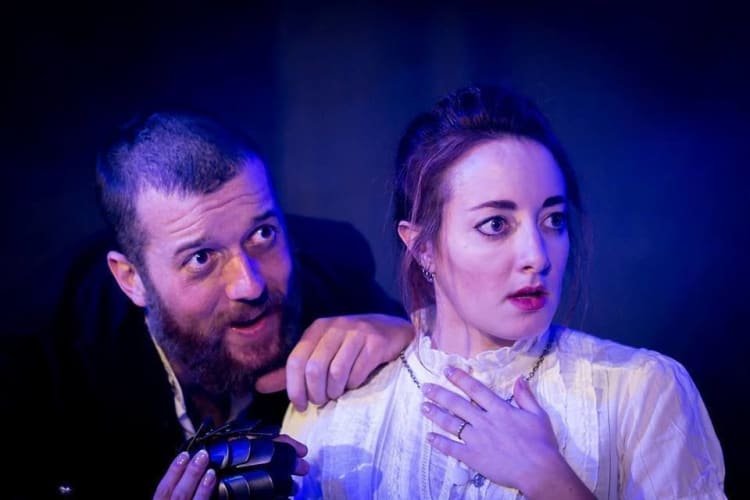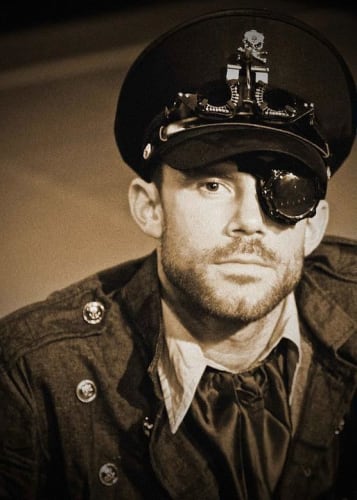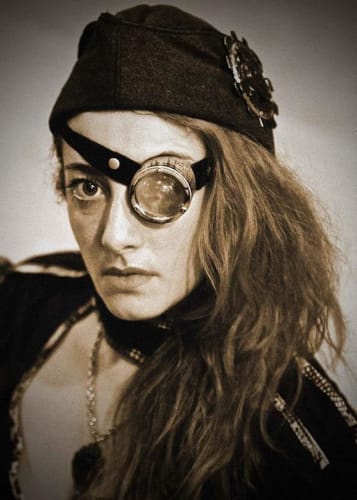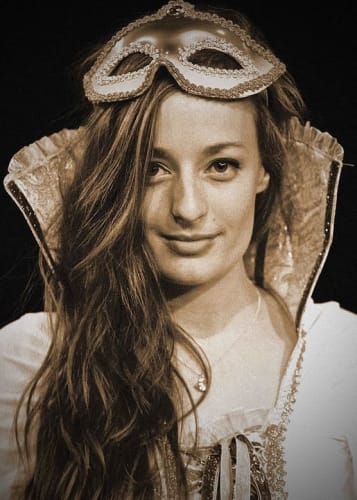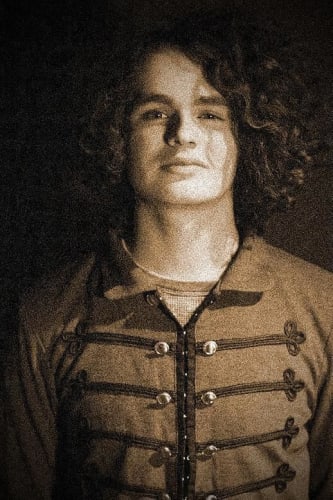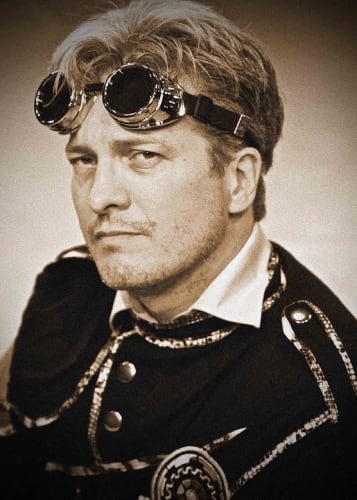Director Ross McGregor here offers his adaptation of Shakespeare’s play but, apart from some extensive cuts and the replacing of Shakespeare’s songs with some very different modern ones, he sticks largely to the original text to create a fast-moving fantasy.
Like Othello, this is a tale of suspicion and jealousy, though in a lighter vein and with a happy ending. Sicilian king Leontes is convinced his wife Hermione is having it off with his guest and former childhood friend Polixenes, King of Bohemia. Sure that the child she is carrying is not of his getting, he plots the murder of Polixenes, the killing of the child and the arraignment of his wife. Too late, he discovers he is in error, but a dark first half blossoms into sunshine as it picks up the story with the rescued baby, a teenager in love.
This is a timeless tale of fairy story of happenstance. Its implausibilities still carry a moral message showing faithfulness, goodwill and generosity rewarded though set, as most fairy stories are, in a time of strict hierarchy. In traditional tales, a peasant girl who marries a prince usually turns out to have been a princess anyway.
McGregor presents the play in a magical performance space, a central area marked out upon the ground in tiny coloured lights, a billow of silk above, all strung around with coloured bulbs. It is a cockpit-like arena thrust out into the audience and backed by rostra.
Here, King Leontes lies on the floor playing with his son Mamillius but, despite the happy scene, he seethes with suspicions, the lights dimming every time he shares his thoughts. This is a production that makes its points overtly, not through subtleties.
Black is the dominant colour at court, the men in rather Ruritanian uniforms, attendants’ faces masked by balaclavas. There are some oddities, difficult to interpret: King Polixenes bears only an NCO’s insignia emblazoned on his sleeve, the royal family sport aviator goggles—but they are not, as it seems at first, a mark of regal rank for they are not the only ones who wear them.
On his right hand, Christopher Neels’s Leontes wears a metal plate gauntlet. Is it for protection or to strike a more savage blow? It certainly illustrates a violent nature that later erupts in savagery, graphically choreographed by fight arranger Robert Myles.
There is little offered here (or by Shakespeare) to suggest a noble king who comes to tragic downfall. How did he get such a loyal and devoted wife as honourable Hermione? Was this daughter of a Russian ruler just a political pawn in some treaty? McGregor doesn’t go for explanations but for dramatic intensity which he pushes hard, getting moving pleadings from Elizabeth Appleby’s Hermione even though she’s lost quite a lot of lines.
Ben Bradford’s Polixenes is a calm contrast to Leontes’s roaring, vocally sometimes a little too subdued for clarity of consonants but suggesting a touch of extra intimacy with his hostess Queen to feed Leontes’ imaginings.
When David Robert Olley’s worthy Antigonus abandons the baby princess Perdita on a rocky Bohemian shore and then, in one of theatre’s most famous stage directions, exits “pursued by a bear”, this production doesn’t give us just a man in a fur suit but a hungry, full-sized beast manipulated by four-puppeteers, half-seen in the shadows.
It is followed with a choreographed sea storm of drowning sailors, a spectacle of flashing lights and moving bodies that give Olley time to reappear as the Old Shepherd who find the baby.
Stage manager Ben Kerfoot (Claudio in this summer’s Much Ado) as Time, now leaps the years of Perdita’s childhood, handling the verse simply and clearly to carry us through to the play’s summery half of comedy and happy conclusion. McGregor sets the pitch by giving thieving Autolycus a western song to introduce himself. Robert Myles gives him a lively, fast-talking charisma and deft pilfering along with some zany physical humour. Despite his verbal dexterity it is the clowning that provides the comedy.
This isn’t quite the bucolic Bohemian festival you might expect at sheep-shearing. Perdita, Queen of the festival, is decked out like a Barbie version of a Christmas tree fairy and the country wenches and their behaviour suggest a raunchy Western whorehouse rather than simple local lasses.
It makes the disguised prince Florizel (Jack Sharman), who is courting Perdita, seem even more risk his royal reputation. A more shocking discovery when his disguised father comes looking for him.
Things rush ahead to their conclusion with Elizabeth Appleby making a magnificently immobile statue and one of those joyful scenes of reconciliation that Shakespeare is so good at to send an appreciative audience happy home.
Its then perhaps you have time to notice that the theatre’s black walls are decorated with a drawn landscape that features not only dragons but a long dirigible and it is then that those aviator goggles and bursts of steam are suddenly given explanation.
That overhead silk cylinder, the blue ropes leading down from it and the lights that sparkle in the floor are the gondola suspended from an airship. Quite how those concepts fits the play or how it could accommodate its action remains unanswered. Best not to think about it!
